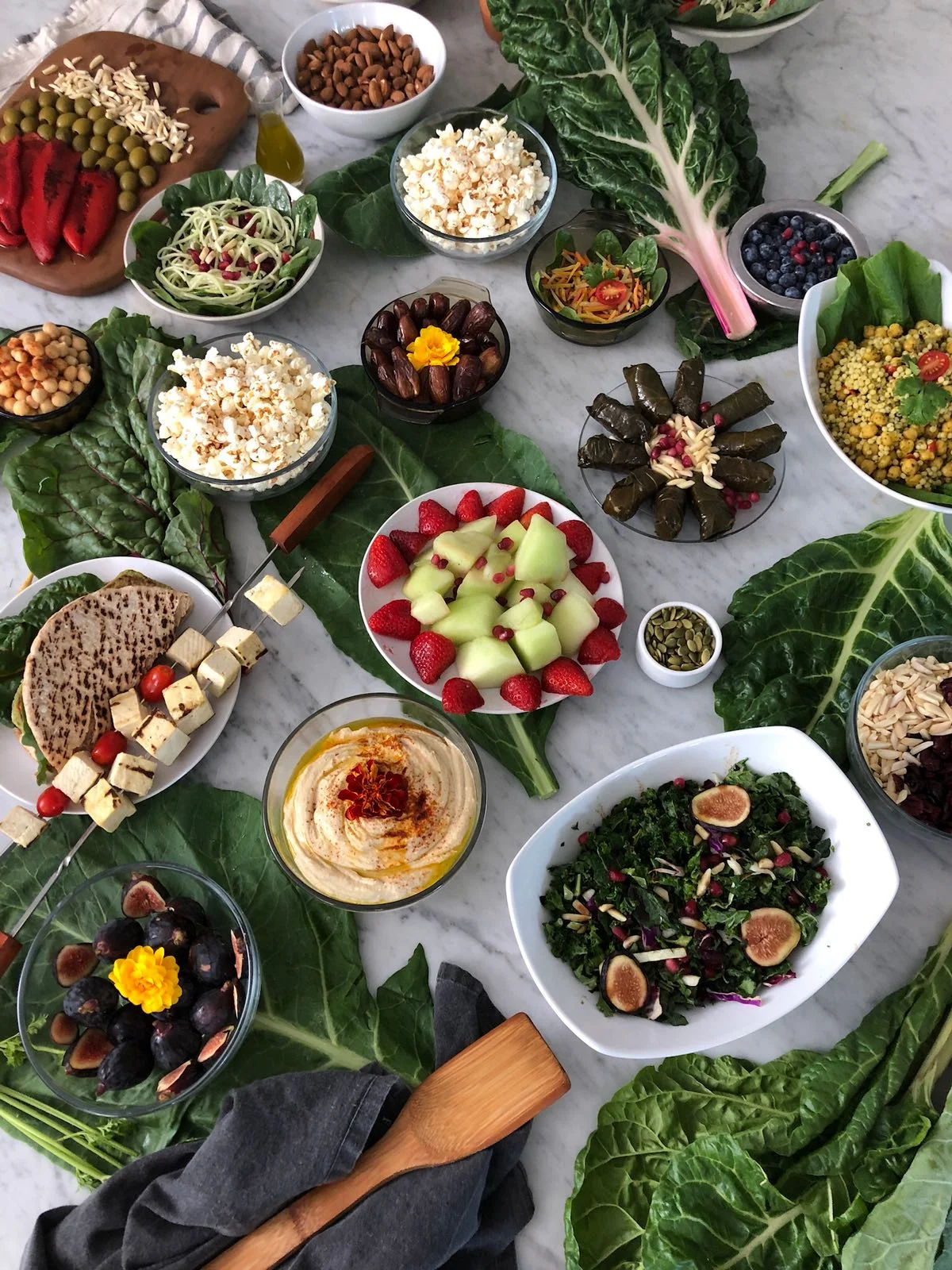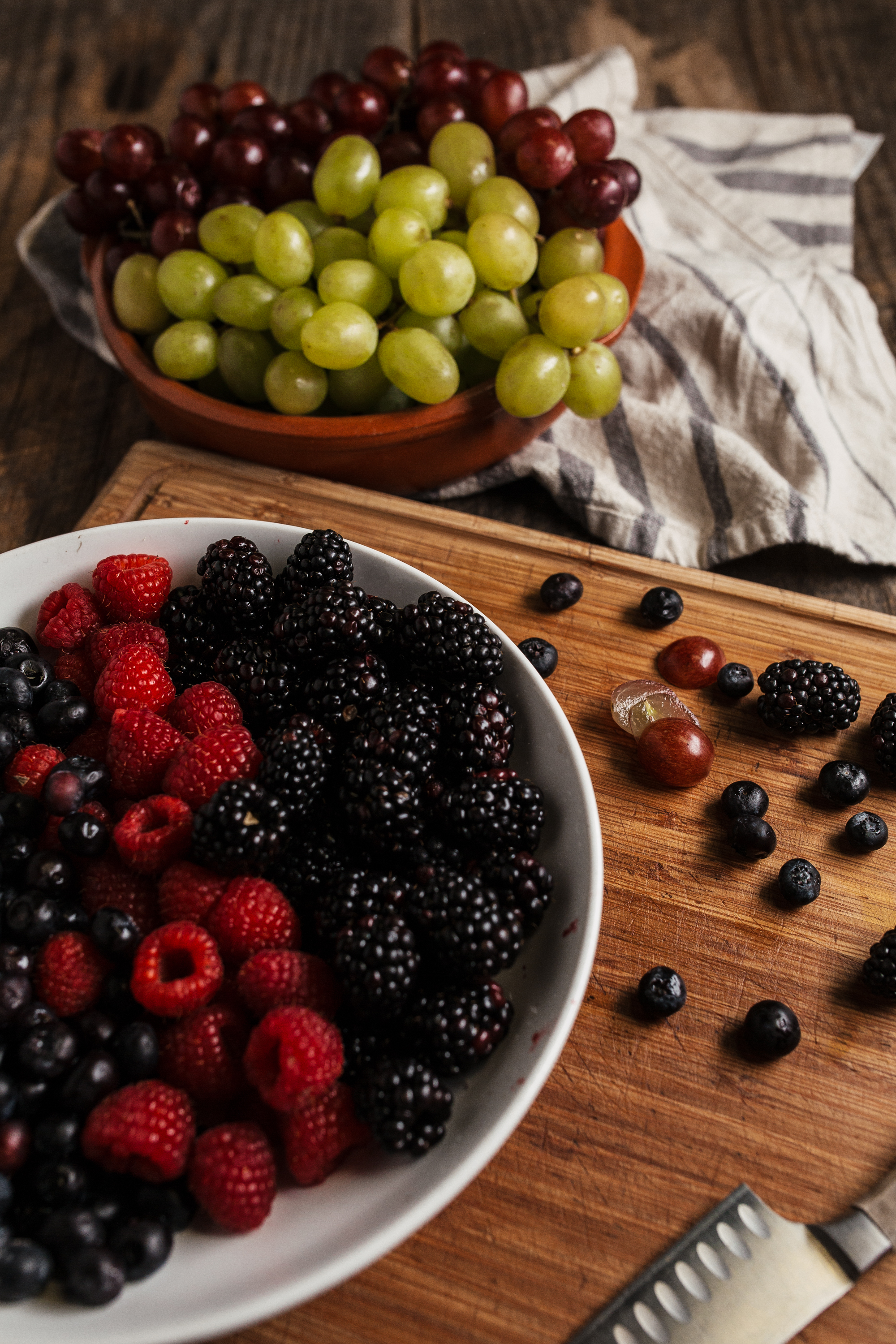
Why You’re Making The Right Decision
Our bodies work best when we’re getting all the nutrients we need from whole foods and minimizing the amount of hormones, saturated fats, cholesterol and other toxins in our diet.
Unfortunately, in today’s hectic world, eating plant-based food and avoiding the bad stuff isn’t easy. As a result, our bodies build up toxins and we feel the effects without even noticing it.
Which of the following applies to you?
⃞ I often lack energy for no reason, feeling slow and lethargic
⃞ My brain feels foggy and I can’t think straight
⃞ I often feel stressed or overwhelmed
⃞ I have excess weight I’d like to lose
⃞ Sleep can sometimes be difficult
⃞ My skin isn’t as clear as I’d like it to be
⃞ I often have headaches
⃞ I often feel bloated or experience acid reflux
⃞ I have congestion in my sinuses
⃞ My family has a history of cancer, diabetes, heart disease, high cholesterol
The good news is that because the food we eat is often the main cause of these complaints, we can use food to overcome them.
Adopting a plant-based diet can help you shed excess weight, renew your energy, prevent and even reverse some of the most debilitating diseases we face today such as diabetes. "There's a really substantial amount of research that correlates more plant-based diets with decreased risk of chronic diseases [such as] heart disease, cancer and diabetes." - Alicia Romano, registered dietitian at Tufts Medical Center
And the great news is you can start to see those changes in just 21 days.
What Can I Expect
There are certainly challenges in changing something we do multiple times, every single day. However, if you keep your goal in mind and know the barriers you are likely to come across we believe this challenge can be an exciting and empowering one. This is what you can expect to feel and experience in your 21 days of the plant-based challenge.
1. Lose Weight
It’s likely that, if you follow this guide, you will lose weight without counting calories or restricting your eating. People who switch to this diet often find themselves losing 10lbs without trying and hundreds of others have lost up to 100lbs by switching to whole, plant-based foods.
2. Your Cravings Change
Miraculously, as the food you eat changes, so too do your taste buds. It might surprise you that as you progress through the challenge you start to taste simple foods in different ways. You might start to enjoy coriander, crave tomatoes or find a distate for sugar as you appreciate the taste of tea.
3. More Energy
By focussing on whole, plant-based foods you will avoid sugar spikes and crashes and the burden on your body of digesting meat. Together, this will result in increased levels of physical and mental energy
4. Glowing Skin
Likely as a result of shifting to unprocessed plant-based fats (such as nuts and avocados) and away from saturated fats in dairy and meat and also avoiding the hormones found in chicken, meat and dairy, you might notice significant changes in your skin.
5. You Might Feel Gassy or Bloated
In the early days of a vegan diet you can expect symptoms like gas and bloating as your body adapts to the increased quantity of fiber you’re consuming which changes the bacterial makeup of your gut. This will take time to adjust and can be viewed as a part of the body’s detoxification process.
6. Nutrient-Nerd
You’ll start to become more interested in nutrition and vitamin deficiencies that are affecting our nation and hopefully you’ll start taking Omega-3 and B12 supplements. Large proportions of those who eat meat also suffer from these deficiencies so don’t let this put you off, you can buy these supplements inexpensively.
How Are You Going To Do It?
Thinking about starting a challenge can be overwhelming. It’s important that you know you can accomplish it and keep focussed on your progress and the positive impact you’re having on your health and wellbeing. In order to make sure you feel good throughout the challenge, here are a few tips for staying on-track.
1. Set yourself a goal
Start by setting yourself an achievable goal. For example, try out 1 plant-based breakfastrecipe tomorrow. Make sure that whatever this goal is, it’s specific and has a deadline.
2. Recognize your progress
Once you’ve made any progress, take a moment to recognise it. Your first plant-based breakfast is a milestone and so too is your first plant-based dinner and first week of being fully plant-based!
3. Abundance of taste
Remember to re-focus your thinking on on what you can eat, not what you’re cutting out. A great way to do this is to write down all your favourite plant-based foods. Sometimes it can feel like you’re going to be eating everything new; we sometimes hear people say “I’ve never eaten anything vegan in my life”. Taking a minute to remember that food such as humous, falafel, babaganoush, pomegranates and taboule are all plant-based can make it seem less restrictive.
4. Don’t calorie count
Focus on eating the most nutrient-dense foods you can and don’t worry about counting calories. If you feel hungry as your body is detoxing this is possibly bacteria in your gut craving sugar and salt rather than you actually being hungry. If you have to eat, increase your platesize.
Eating large quantities of plant based foods won’t make you put on weight in the same way as eating processed foods. Trust the process.
5. Label detective
Finally, on a practical note, get ready to read labels. Surprisingly, we find that the more people get interested in the hidden ingredients and tricks of the food industry, the easier they find the challenge. For anything you buy in a grocery store look at the ingredients list and spot any chemicals, milk-powder, added sugars or processed oils. You don’t want to be fooled by the corporations when you’re trying your best to be healthy!
Now that you have a few tricks ready, let’s look at exactly what you’ll be eating and how to make yourself a perfectly balanced and nutritious plate of food
What Do I Eat?
When making any recipe or filling up a plate it can be helpful to think about it in simple proportions. In general, stick to three meals a day with 1-2 snacks at most. You can use unlimited herbs, spices and vinegars to season your food so learning more about cooking and flavours from around the world can help make your challenge much easier to stick to
50% Vegetables
Low in calories and packed with essential vitamins and nutrients, vegetables should form the basis of your plate. Focus heavily on green vegetables such as spinach, lettuce, chard, broccoli and then add a few different coloured vegetables such as peppers, carrots, squash and aubergine.
Ensure that when cooking vegetables oils are kept to a minimum (1-2tbsp per meal). You can saute vegetables in vegetable broth, steam them or bake them in the oven to keep the calories low.
25% Legumes
Your main source of protein, legumes have no fat content and are a cheap, easy source of protein. There are hundreds to choose from so try experimenting and finding your favorites.
From chickpeas and fava beans to cannellini beans, black beans, kidney beans, green peas.
20% Grains
Grains are high in fiber and protein, essential to optimal digestion and muscle repair. Freek, bulgar wheat, quinoa (if it’s available) and brown rice.
5% Nuts and Seeds
Add a small handful of nuts and/or seeds to any dish to boost the healthy fats and fiber. Ensure that all nuts and seeds used are raw and unsalted.
Snacks
When it comes to snacks, simply keep them to one handful of nuts and seeds or two handfuls of raw fruit or vegetables.
WEIGHT LOSS SUPERCHARGE
Although over 75% of the Middle East are overweight or obese, this plan is designed even for those who have an optimal BMI to improve their health from the inside. If you, however, need to lose >5lbs to achieve a healthy weight here are some tips to help you do that
1. Write it down
Writing down everything you eat can be a great way to make you more aware of your individual habits and where you might be eating too much. Although calories aren’t everything when it comes to weight loss, if you are eating well above the recommended amount (~2,000/day) you are unlikely to lose weight without an extremely active lifestyle.
For one week, try logging everything you eat in an app or a notebook, together with the calories. If in doubt, aim to slightly overestimate calories.
2. Read all labels
In order to do number 1 you’ll have to start doing this anyway. Checking the ingredients and calorie counts of your go-to sauces and foods will help you better understand what you’re eating and why you might have gained weight.
Once you have the knowledge of which foods are energy-rich you can choose to eat them sparingly or opt for bigger portions of foods lower in calories
3. Move more
Going to the gym or jogging may be the obvious way but even if you do that, it’s likely only for 3-5 hours of a whole week. You can see benefits from moving more in your day to day life. Parking your car a little further from the store or walking while you take a phone call. If you can make moving a habit, it’ll add up.
4. Focus on calorie density
Generally with food, focus on calorie density and opt for foods with low calorie density. That is, fewer calories per gram. The best foods are raw or steamed vegetables and raw fruits. These should form the basis of your diet and for most people you can eat as many fruit and vegetables as you like - it’ll be hard to go over your calorie count for the day.
5. Fiber is your friend
Finally, in order to feel full and improve your digestive system to reduce your hunger levels focus on eating fiber and foods packed with water. Again, fruit and vegetables are the best. You can watch our specific video on fiber to learn more.











